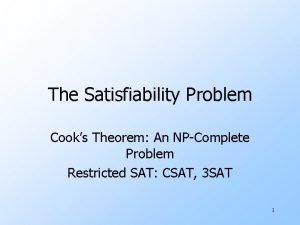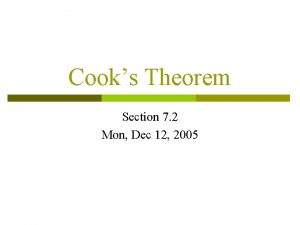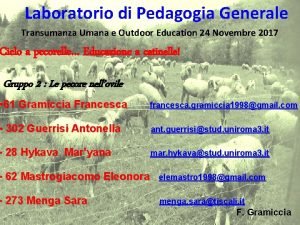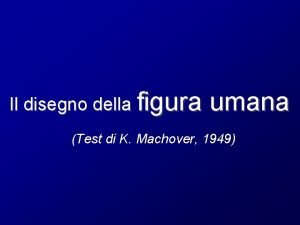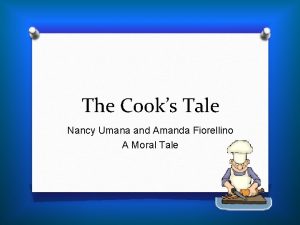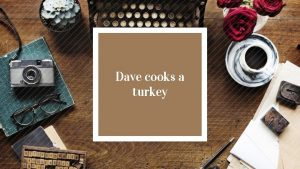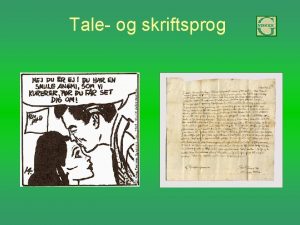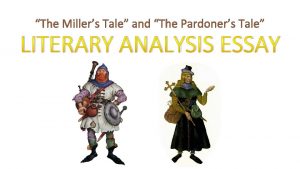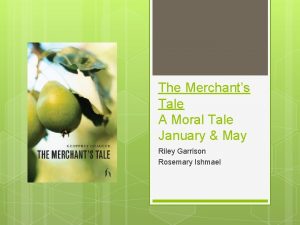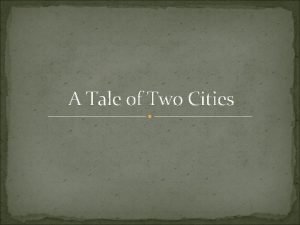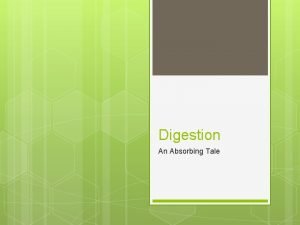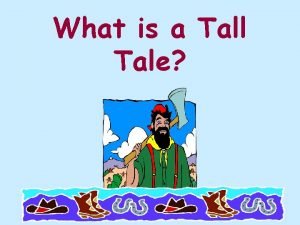The Cooks Tale Nancy Umana and Amanda Fiorellino









- Slides: 9

The Cook’s Tale Nancy Umana and Amanda Fiorellino A Moral Tale

Prologue O The Cook praises both the Reeve and the Miller for their own tales O He promises that his own tale will be just as great O But it won’t be up to their standards, because he is dishonest in his work.

Tale Summary O New apprentice starts living in the cooks town, who is known as Perkin Reveler O He loves to sing and dance O But he also loves to gamble and drink

Summary continued O He would gamble everyday He was the best apprentice in town who, “rattled dice and threw them down” O His master saw how easily he spent his money and became aware of his problems O “He often found his box bare” a.

Summary Continued O “When a prentice takes to vice… his master in the shop shall be the one who pays though having no part in the fun” O The apprentice’s master was sick of his terrible behavior O He thought about an old proverb, “ A rotten apples better thrown away before it spoils the barrel. ”

Summary Continued O The master let the apprentice go O The apprentice then left and found refuge with his friend, “a chap of his own sort” O His friend’s wife owned a store, but it was only for public appearances to mask her prostitution.

Literary Devices O Irony: At first the Cook comes across as a nice, cheery man. In the prologue, we find out he serves old food to people and gets pilgrims poisoned by his rotten food. For example, “There’s many a pilgrim wishes you Christ’s curse; Your parsley has them feeling all the worse (They ate it with your stubble-nourished goose), For in your shop so many flies are loose”.

Literary Devices Continued O Figurative language: Simile: “ The Reeve’s Tale pleased the London cook as much as a backscratching” and “He was as full of love, as is the beehive full of honey sweet. ” b. Alliteration: “And play at dice at suchand-such a street” a.

Our Reflection O We didn’t like the plot of the tale because it doesn’t advance and the characters don’t develop O The tale is left unfinished by Chaucer, we don’t know if it was purposely left unfinished or if the pages were possibly lost O Both the Cook and the apprentice have similar characteristics and it is possible that the tale might actually be an autobiography O The cook came across like a honest man, but was very hypocritical.

